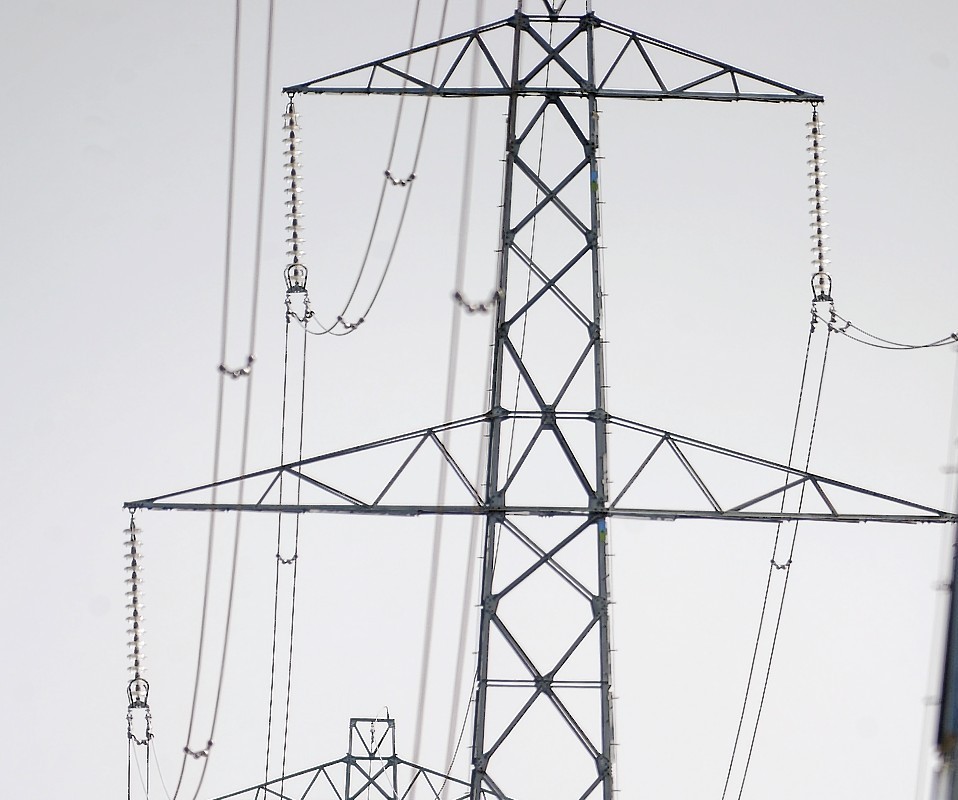Families in the north and north-east are having hundreds of pounds a year added to their electricity bills because of a hidden surcharge.
Households are paying 2p more per unit of power than consumers in other parts of the country because of regional variations in transmission costs
The situation was branded a “national disgrace” last night as campaigners claimed it was driving people into fuel poverty.
And both the Scottish and UK governments were urged to step in to end the electricity bills “postcode lottery”.
Power giant Scottish and Southern Energy (SSE) insisted it wanted to scrap the regional price differences – but said it was unable to do so because they were set by regulator Ofgem.
It was revealed in June that almost 60% of people aged over 60 in rural parts of Scotland were living in fuel poverty, compared with 45% of over-60s in urban areas.
The 2p surcharge affects households in the Highlands, islands, Moray, Aberdeen and Aberdeenshire.
The attack on the pricing regime was led by the Western Isles Poverty Action Group, which said it was “astounded” to learn that SSE and other electricity providers were levying the additional charge.
Group chairman, Councillor Angus McCormack, said: “This is a national disgrace. The Outer Hebrides has the highest fuel poverty figures in Scotland, at 71%, compared with a 27% Scottish average.
“A 2p reduction in unit costs would have a significant impact on fuel poverty. A consumer using 15,000 units per year would save £300.
“The poverty action group is calling on the Scottish Government to resolve this iniquity as a matter of urgency.”
George Thomson, the Aberdeen-based chairman of the Grampian Senior Citizen’s Forum: “It’s completely unfair to put an extra charge on people because they live in rural area rather than urban areas.
“I thought that the basic trend of our political system was to make this a fairer society. You can’t possibly say that if you allow an energy company to increase their prices to someone living in a remote area because it’s costing more money to get there.
“It’s quite outrageous as far as I’m concerned. That’s not what our society is supposed to be about. The energy companies as it is have been exploiting the situation to the hilt.
“The elderly people obviously ,we’re already struggling to pay our bills as it is. Any additional payment they have got to make is quite outrageous.
“Old people, if they get a bit cold, they can very quickly get hypothermic.”
Jamie McGrigor, Conservative MSP for the Highlands and islands, said: “I find this very worrying, especially since people in these areas will be using more electricity due to experiencing colder, windy weather.
“They require more heating so it is a double-whammy for them. I will be taking this up with SSE.”
Councillor Alasdair Christie, who is manager of Inverness, Badenoch and Strathspey Citizens Advice Bureau (CAB), said: “The CAB in Inverness sees very many hundreds of people a year that are struggling to pay for their electricity.
“We try to assist them to get on to the best possible package they can for their own financial benefit.
“It does seem unfortunate and unfair that because of a postcode somebody might have, they are paying more.
“In the north of Scotland we are more dependent on heating because of our temperature variances than other parts of the UK.”
The fuel poverty figures for the Western Isles were compiled by the locally-based The Energy Advisory Service.
Its fuel poverty officer, Kirsty MacLennan, said: “The higher than average fuel costs associated with living in a rural location contributes significantly to these extremely high figures.
“It has reached the stage where it is affecting a clear majority of people in the Western Isles, and to achieve a fairer and more equal society we need to find a mechanism to tackle the inequality faced though unfair regional pricing.”
A spokeswoman for SSE said: “Regional pricing affects all energy suppliers and incorporates the additional costs associated with transporting energy to remote areas.
“SSE favours replacing this with one national charge so a customer pays the same price if they live in Benbecula, Bristol or Bradford.
“We have raised this with the Competition and Markets Authority as one way to simplify customers’ bills.
“We know affordability is customers’ number one concern – that’s why we’ve frozen our standard energy prices to at least January 2016.”
